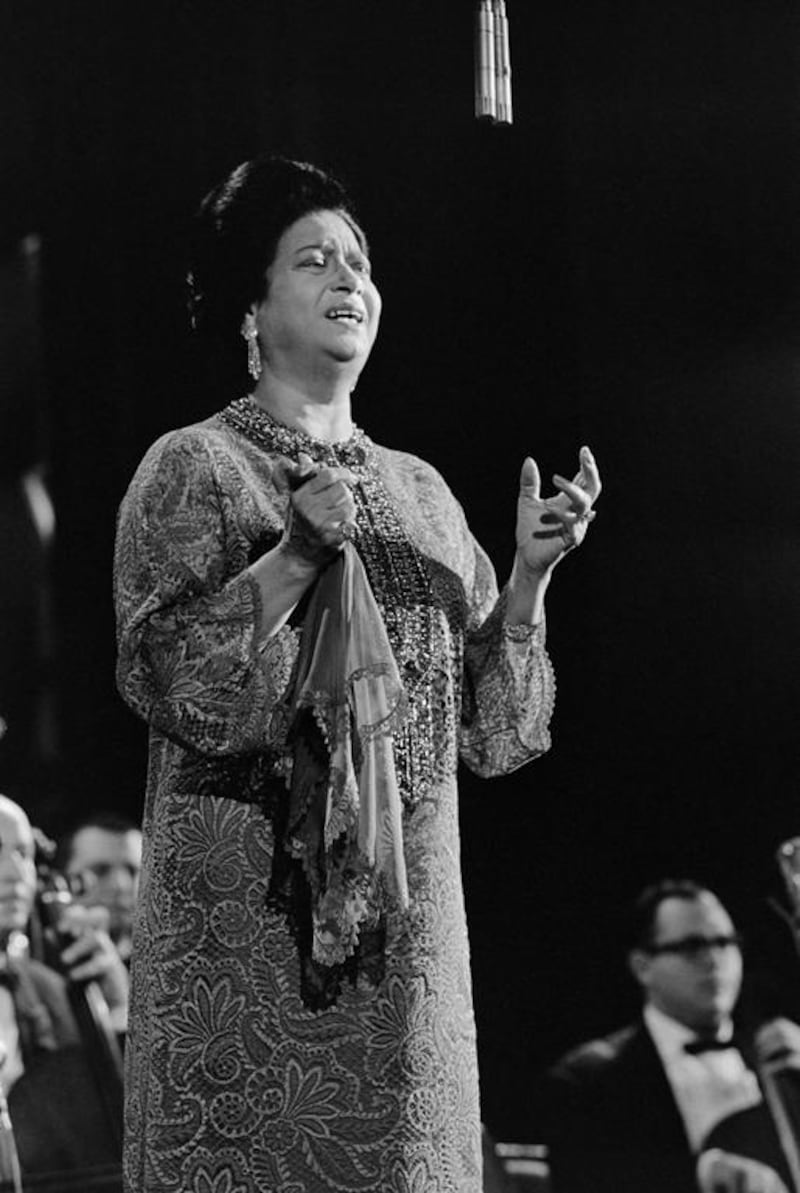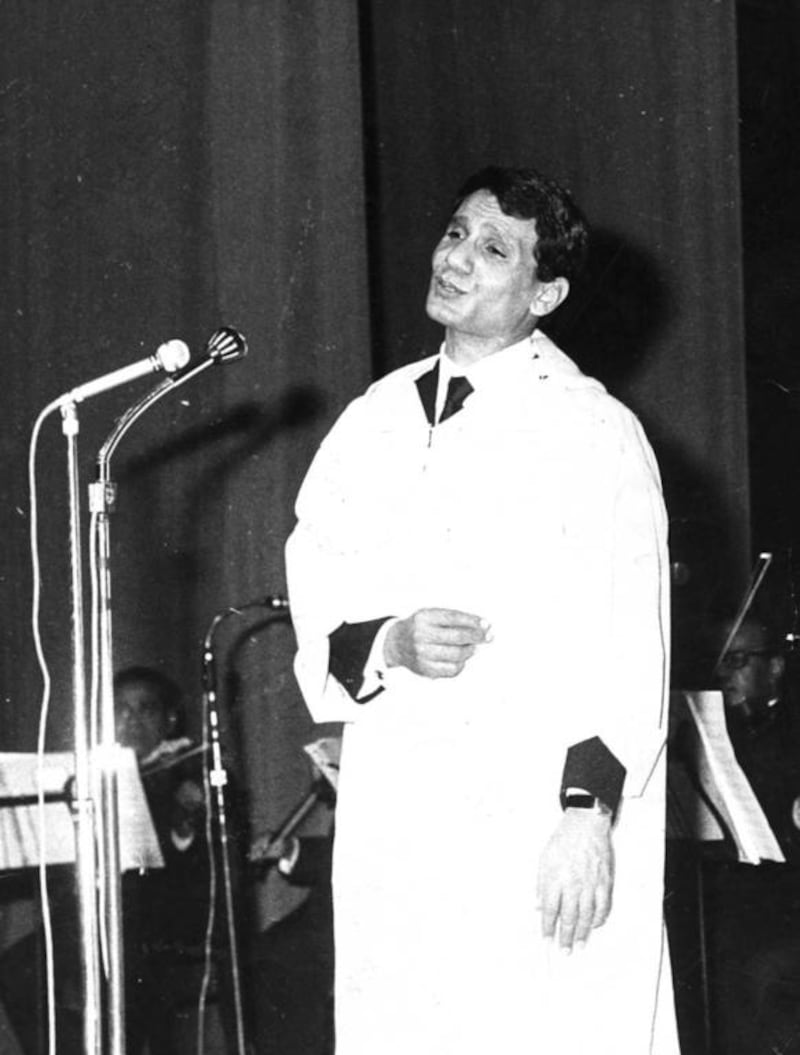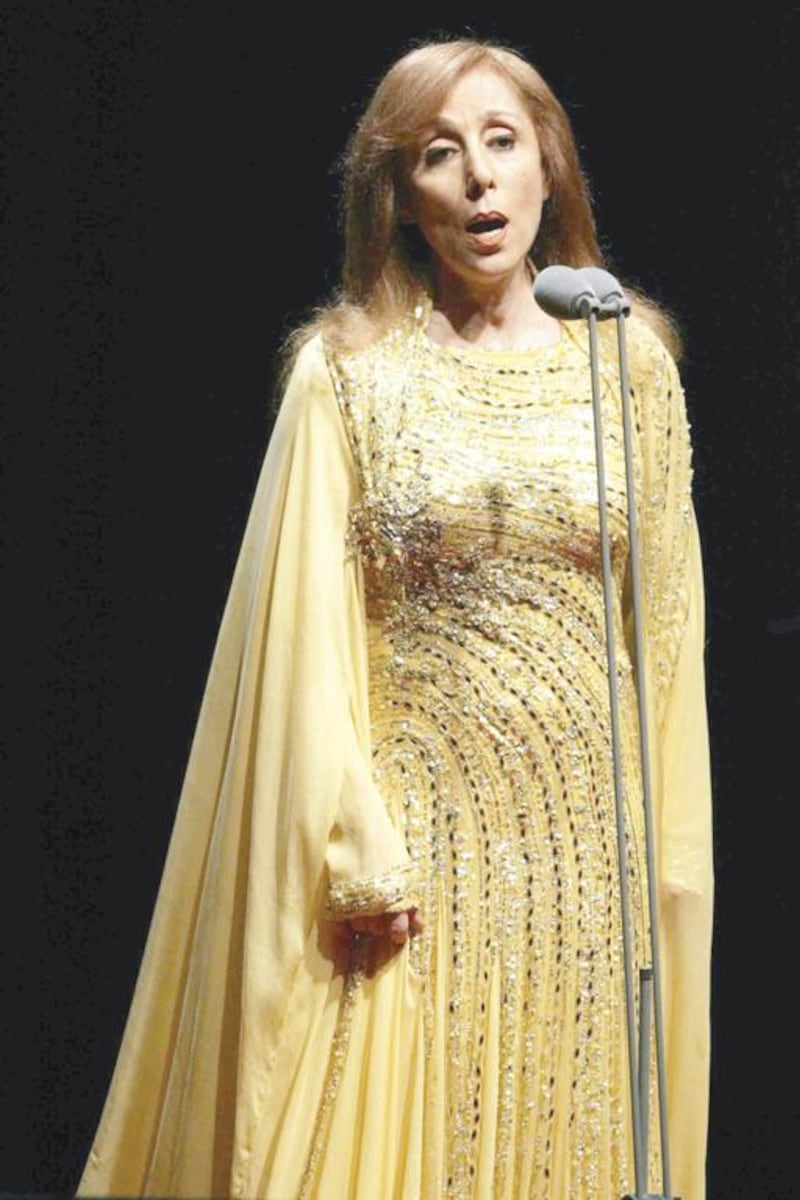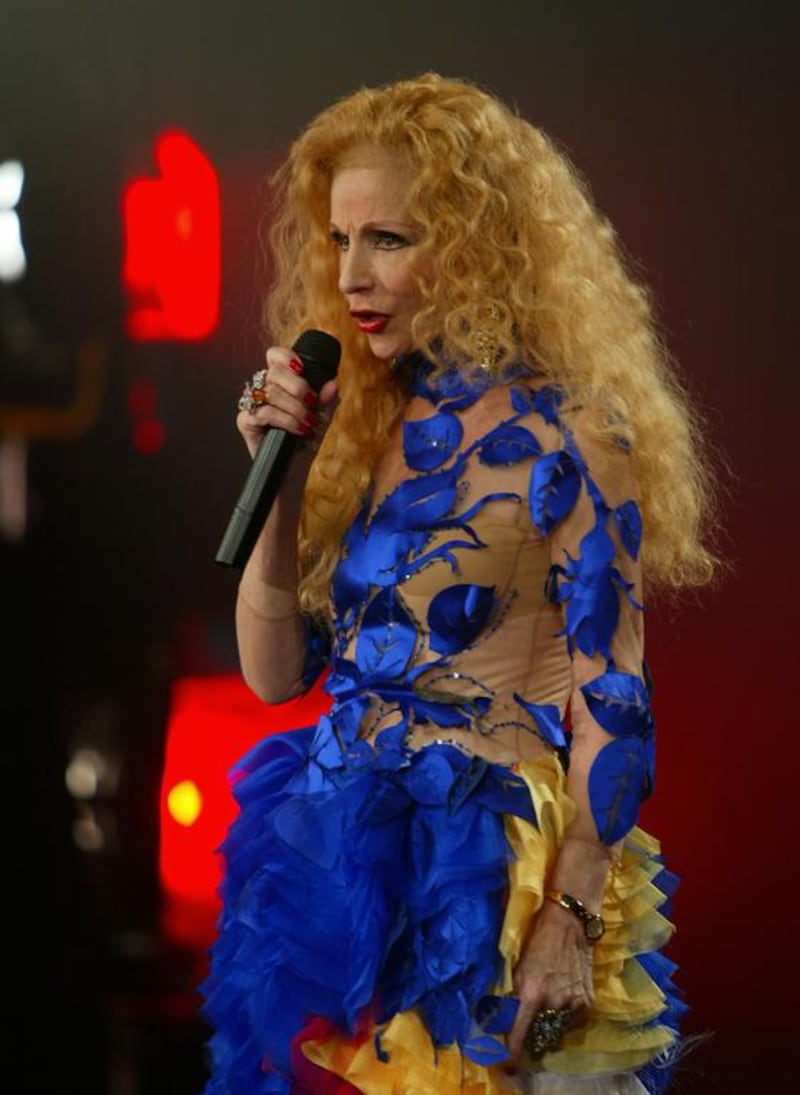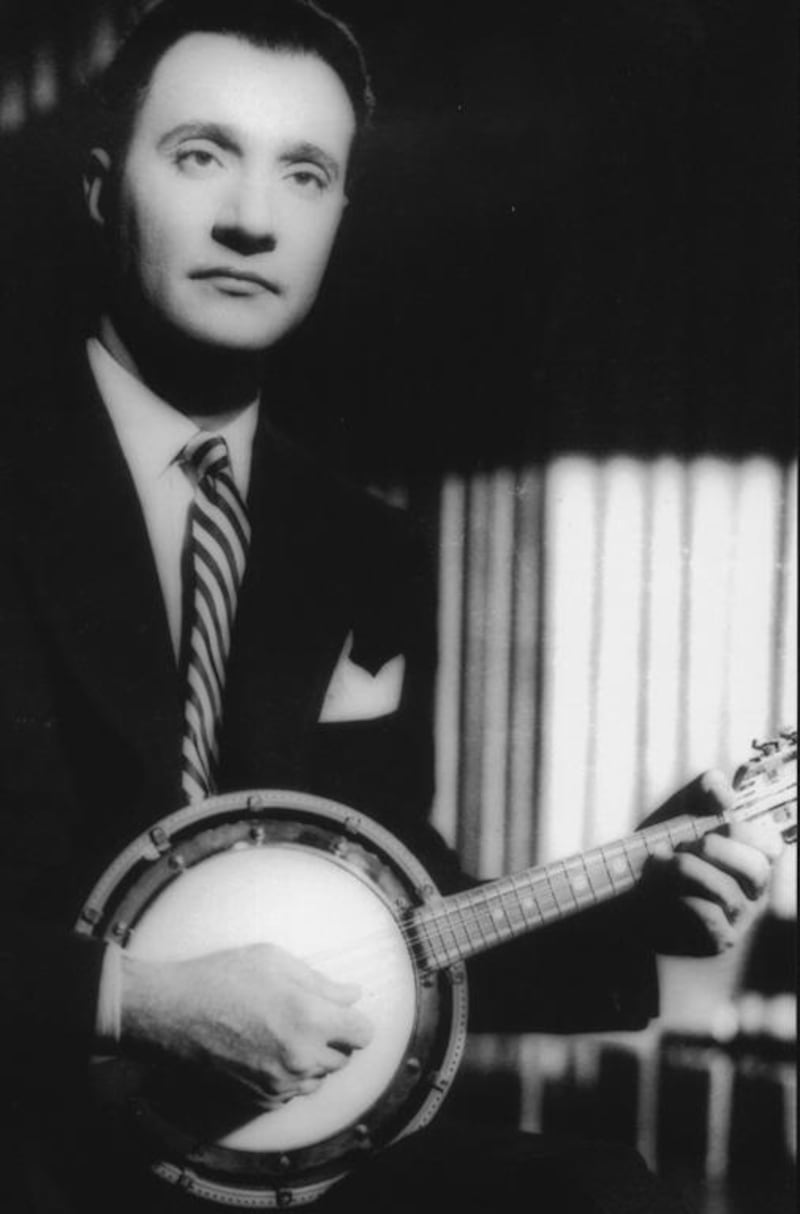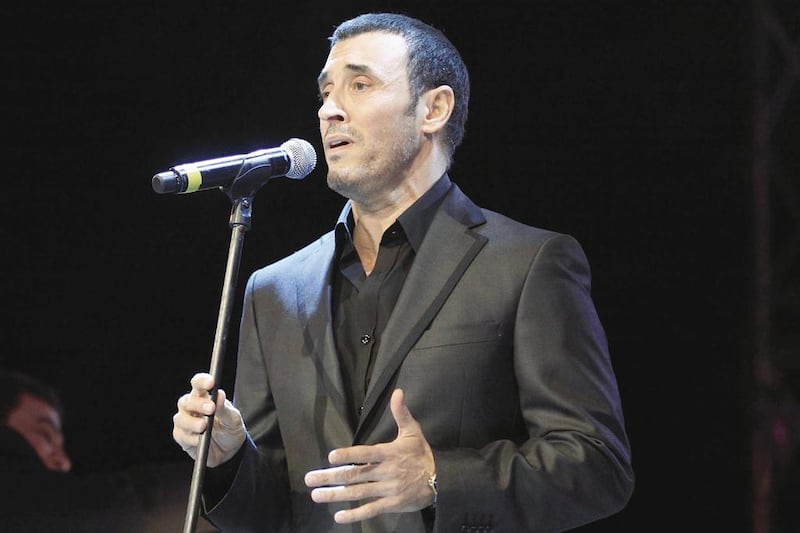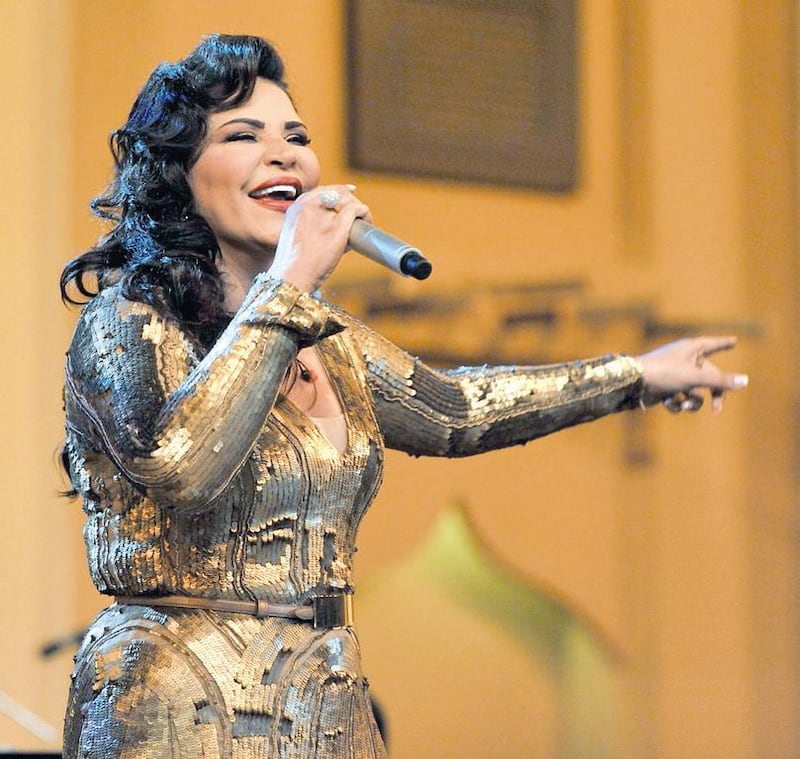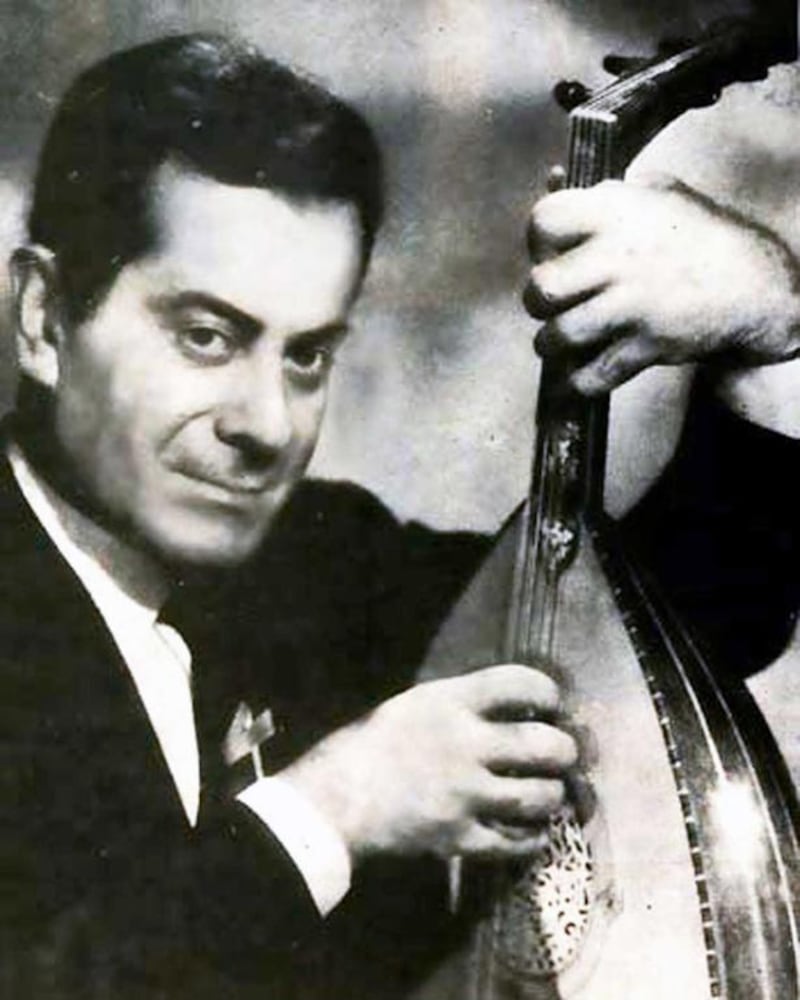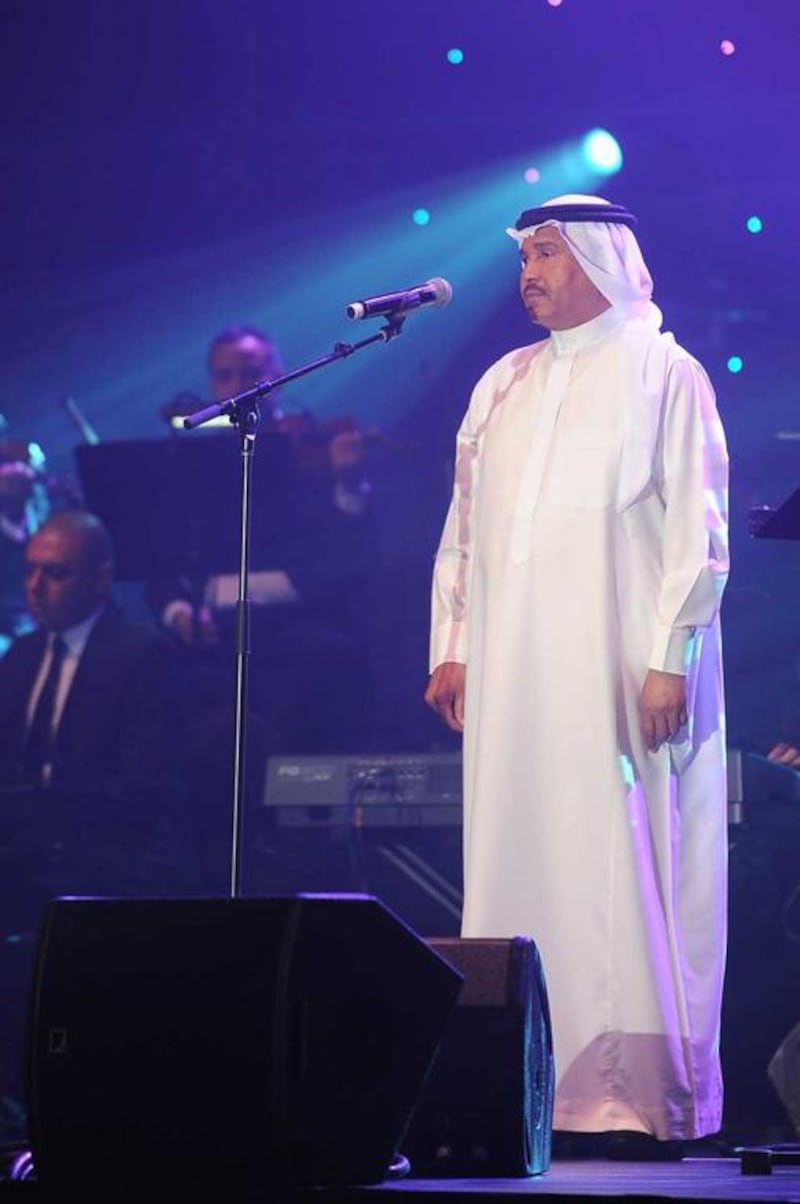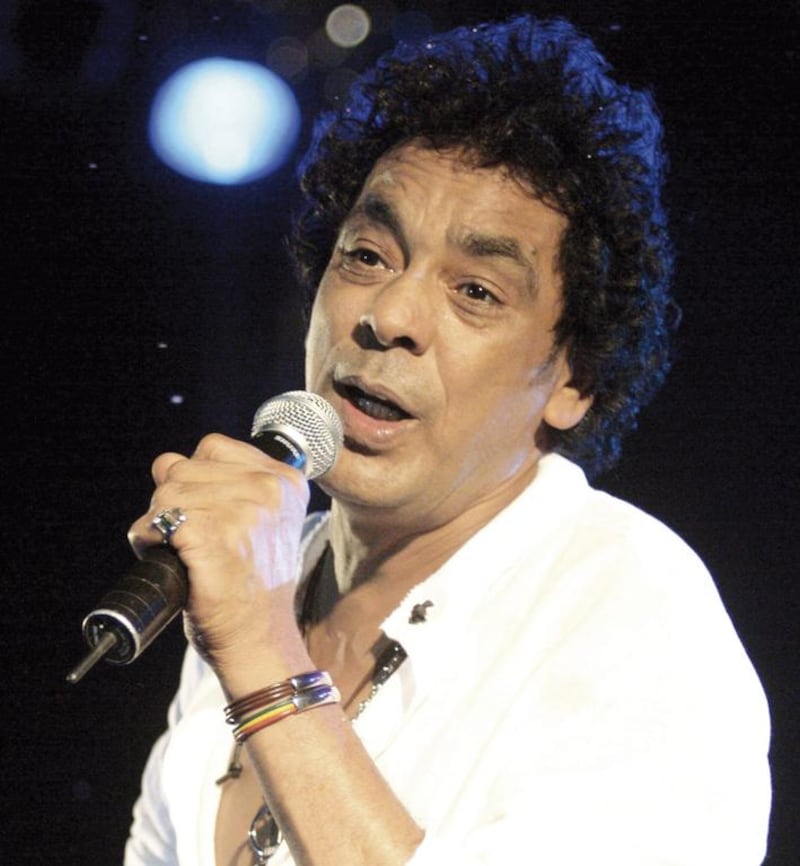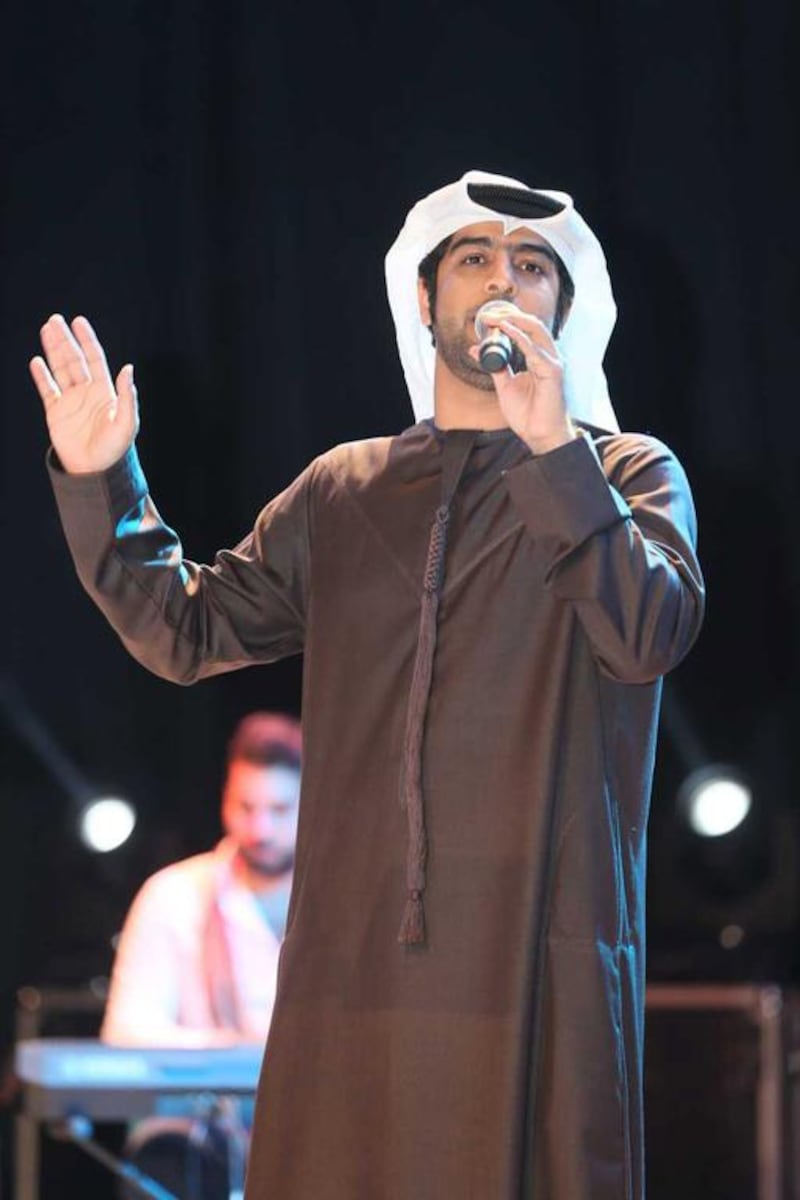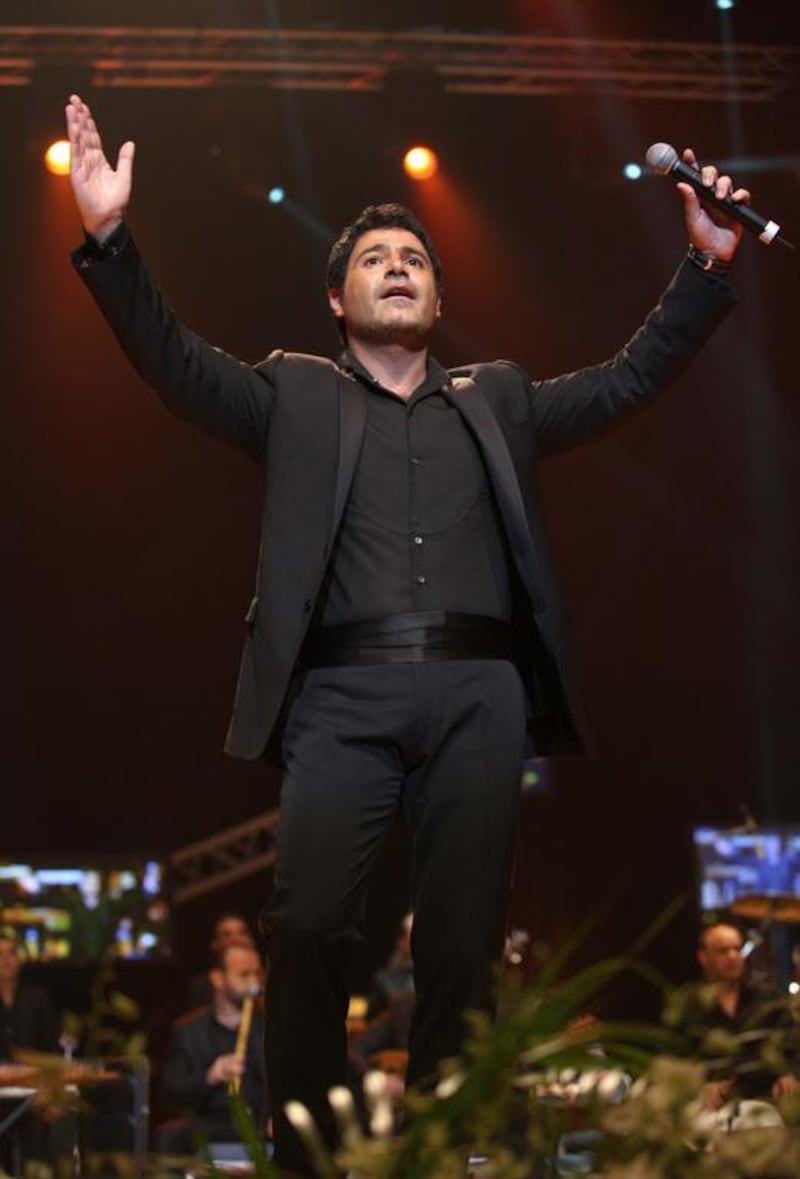They have sold millions of records, appeared on TV, been invited to top events and festivals, and have hundreds of thousands of fans across the region — but unless an Arab singing star has been honoured with a nickname, they can’t really claim to have truly made it as an artist in the Middle East. Legends such as Umm Kulthum, Abdul Halim Hafez and Fairouz have been given not just one pet name or honorific title but several, some by fans, some by critics — even by fellow artists. Sometimes, fans don’t even know the real names of the stars they adore. A nickname evokes a timeless image and persona for Arab stars, reminiscent of the old star-system days of the Hollywood movie studios, during which carefully cultivated public personas would be created for promising young stars, with new names and fictional backgrounds to generate publicity. Rym Ghazal finds the stories behind the nicknames.
The Planet of the East
Umm Kulthum
Egyptian
The legendary Egyptian singer from the Golden Age of Egypt — performed from 1920s until her death in 1975. She had two honorific titles. One was Kawkab Al Sharq — the Planet of the East — given to her because of her great influence on the art scene, her strong presence on stage and powerful vocals. Umm Kulthum was one of the greatest and most influential Arab singers of the 20th century. The other honorific title given to her, by Egyptians, was El Sitt — the madame, or the lady — a title given out of respect for one of their own.
The Ambassador of Love
Abdul Halim Hafez
Egyptian
The legendary romantic crooner from Egypt was appropriately dubbed, and best known as, Al Andaleeb Al Asmar — the Dark-skinned or Tan Nightingale — for his gentle voice, which was like the song of a bird. However, his varied repertoire earned him numerous titles: He was known as Safeer Al Hob (Ambassador of Love), thanks to his swooning ballads. He sang patriotic songs, following the Egyptian revolution of 1952, earning other nicknames, including Sout Al Shaab (The Voice of the People), and Ibn Al Thawra, which translates as The Son of the Revolution. He died at the age of 47 in 1977.
The Ambassador to the Stars
Fairuz
Lebanese
The legendary singer and actress from Lebanon is arguably the greatest living Arab diva. Her songs, which cross borders and generations, have earned her the title Safeerat Al Nojoom (Ambassador to the Stars) and Jarat Al Qamar (Neighbour to the Moon). Her patriotic songs also had her dubbed Rouh Lebnan, which means the Soul of Lebanon. Born as Nouhad Haddad, her stage name was given by Halim Al Rumi, a composer and musical director, who called her Fairuz (Turquoise) because her voice reminded him of this precious stone. Western critics joined in, with some calling her the Callas of Arabia, after the famous opera singer Maria Callas.
The Legend
Sabah
Lebanese
The renowned Lebanese singer, known for her mountainous and husky voice, flashy fashion and perseverance, was honoured with many titles, including The Voice of Lebanon, and as an artist with “a voice like honey”. She made her mark as an actress and singer during the Golden Era of Egyptian cinema in the 1940s and 1950s, and her career spanned 60 years. Sabah earned various nicknames and was known as Al Sabbouha (a diminutive play on her name), and Al Shahroura, in reference to her place of birth in Wadi Chahrour, which also means “singing bird”. She was also dubbed by many Al Ostoora — The Legend. She died at the age of 87 in 2014.
The Composer of Generations
Mohammed Abdel Wahab
Egyptian
Known as the Beethoven of the Arab world, Mohammed Abdel Wahab was responsible for composing the national anthems of the UAE, Egypt, Tunisia and Libya. Born in 1902 in the Bab El Shaariyah area of Cairo (where a statue stands in his honour), it is said that he worked at a circus as a child so that he could sing, despite his family’s objections. He is credited with introducing western rhythms, such as jazz and rock and roll, to Arabic songs. He died in 1991 at the age of 89. His nickname, Moseqar Al Ajyal (The Composer of Generations), is more than apt.
The Sun of Song
Najwa Karam
Lebanese
She is one of the best-selling recording artists in the Middle East, where her powerful multilayered voice earned her the title Shams el-Ghinnieh (The Sun of Song). Born in 1966, she helped to spread the Lebanese dialect in Arabic pop music. Apart from her singing career, Najwa is known for her ever-evolving image, making her a Middle Eastern fashion icon. She was also one of the judges on the hit television show, Arabs Got Talent. In 2011, a street in her hometown of Zahle was named Najwa Karam, and in 2013 the superstar rejected the title Her Excellency the Minister, which was offered to her by the new Lebanese government.
Ceasar of Arab Song
Kadim Al Saher
Iraq
An icon of the Arab music scene, Al Saher’s dynamic compositions range from big romantic ballads and stirring political anthems to pop music and Arab classical music. His dexterity and confidence in his craft earned him the title Al Qaysar, which is Arabic for the Roman emperor Caesar, and in Al Saher’s case, he is the Ceasar of Arabic Song. His charity work and his patriotic songs, especially for his home country of Iraq, earned him another title — Iraq’s Ambassador to the World.
The Queen of Arab Pop
Ahlam
Emirati
The Emirati singer and diva embraced the title Malikat Al Tarab — Queen of Tarab (Arab pop music) — bestowed upon her in 2003 at the Doha Festival. Ahlam certainly lived up to her title with mercurial antics as the judge of Arab Idol. However, her recent reality show, The Queen, which aired on Dubai TV, was axed this month after the first episode.
The King of Oud
Farid Al Atrash
Syrian
One of the most important figures in 20th-century Arab music, known as The King of Oud, the Syrian Druze Prince, who became an Egyptian citizen, had a successful entertainment career spanning more than four decades, during which he recorded 500 songs and starred in 31 movies. Al Atrash, who died in 1974 at the age of 64, was also known as the Sad Singer for his pained facial expressions and emotive voice. He is the brother of the cultural iconic singer Asmahan.
The Rocket
Mohammed Assaf
Palestinian
The musical face of Palestine, Assaf shot to fame after winning the second season of MBC's Arab Idol. He was dubbed Al Saroukh (The Rocket) by popular Lebanese singer and Arab Idol jury member, Ragheb Alama, who described him as the "the best rocket of peace, not war" to come out of Palestine. His voice has been compared to legendary Egyptian crooner Abdul Halim Hafez, so much so that he has been given other nicknames such as Andaleeb Palestine (Nightingale of Palestine) and Assaf Hilm Falastine (Assaf, Palestine's Dream). Assaf's life story was the basis for the 2015 film, The Idol, directed by Hany Abu-Assad.
The Gulf Nightingale
Nabil Shuail
Kuwaiti
Because of his size, veteran Kuwaiti singer Nabil Shuail has been described as a gentle giant with a sweet voice, earning him the title Bulbul Al Khaleeji, or The Gulf Nightingale. Born in 1961, he has been a leading light of the regional music industry for three decades, with hits including Ya Shams, Shoufi Gheirou and Ma Arwa'ak.
The Cliff
Amr Diab
Egyptian
The Egyptian heartthrob made an impact on the international scene, becoming the only Middle Eastern artist to win seven World Music Awards. He combines traditional Middle Eastern influences with western elements, and has been one of Egypt's most popular pop stars since the 1980s. He got another new, tongue-in-cheek, title in 2013: his music videos are often very elaborate and similar to western music videos, and he appeared in a scene from the Al Leila (Tonight) video wearing a suit and flip flops. Given his fashion choice, he was dubbed The Flip Flop Star. He also carries the more flattering title El Hadaba — The Cliff (or hill) — as a mark of respect for his strong presence on the art scene.
The Artist of Arabs
Mohammed Abdu
Saudi Arabian
Known for his classical voice and Oud playing, Abdu is credited with preserving traditional songs called mawrouth (the inherited songs) without much change in their structure or musical arrangements. He has collaborated with other renowned artists, including Umm Kulthum, Farid Al Atrach and Ahlam, and has had an influential role in introducing Khaleeji music’s distinctive rhythmic style to Arab audiences in the 1970s and 1980s — a time where regional pop hits were more orchestral affairs.
The King
Mohamed Mounir
Egyptian
He rose to fame with his Nubian (African and Arab rhythms) musical style and socially minded lyrics. He has a reputation for singing songs voicing the deepest aspirations of the Egyptian people. He is also known for his acting career, starring in 12 movies, four television series and three plays.
The Nightingale of the UAE
Habib Elyasi
Emirati
An Emirati star starting to leave a mark on the Khaleeji pop-music stage, Elyasi was dubbed Al Bulbul Al Emirati, The Nightingale of the UAE, by famed Emirati poet Rashid Sharar. He brings a blend of traditional and regional-flavoured pop, with high-tempo Emirati songs tracks that are described by Emiratis as being “shababiya”, an Arabic term meaning “youth-friendly”.
The Knight of the Arab Song
Assi Helani
Lebanese
Born Mohamed Mazen Al Helani, he took his stage name, Assi, from Al Assi river, the major river of the Levant. His good looks and masculine persona surrounding his folk tales earned him the title Fares, or the Knight of the Arab Song.
